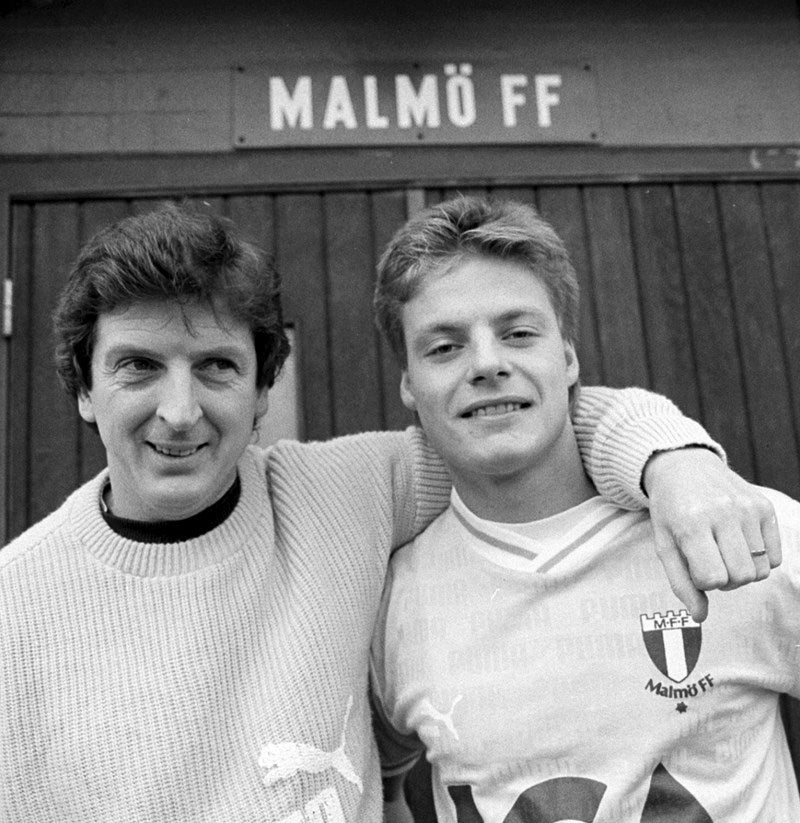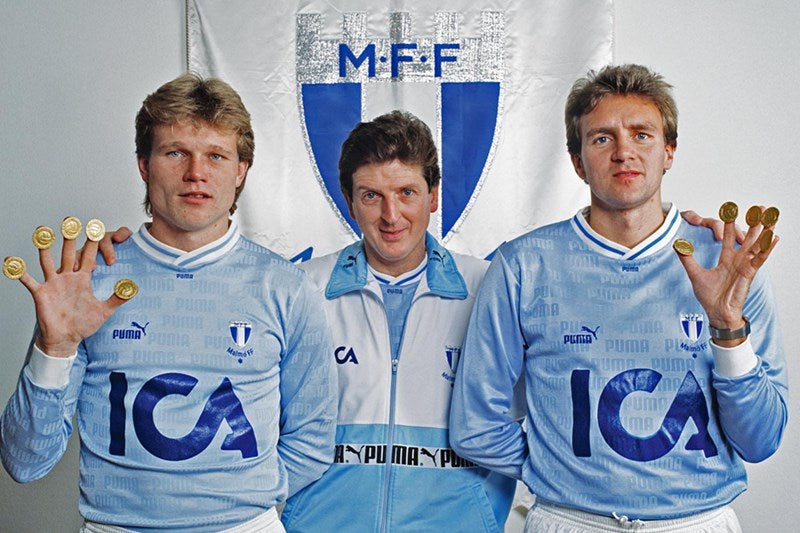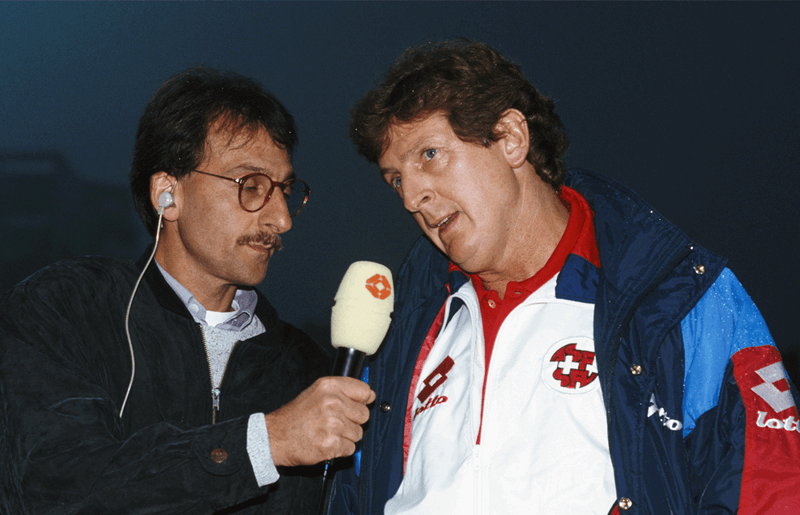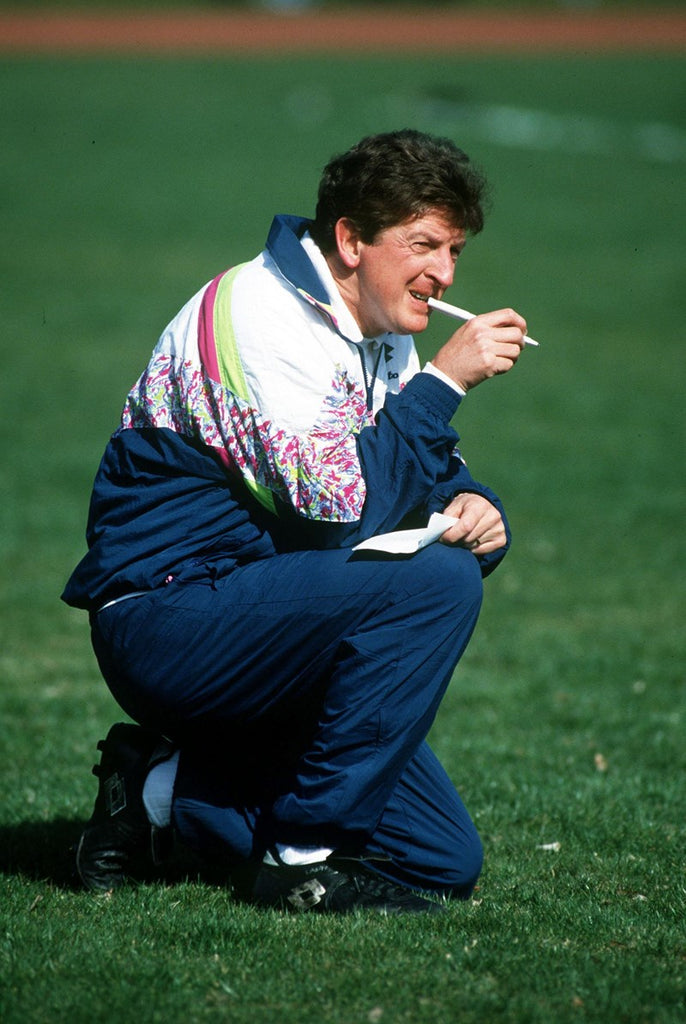With Hodgson announcing his departure from Crystal Palace soon to be replaced by Austrian Oliver Glasner, it's got us wondering if this could be Roy's final dance with management.
Roy, before returning to Crystal Palace for a second stint after Arsenal legend Patrick Vieira was dismissed, stated that he’d be “looking forward to spending a little more time with my wife and son and maybe listening to what they want to do for once, because it hasn’t happened very much in the last 50 years”. Well, that career break did not last long. Soon back in the dugout to provide some familiar stability to a club who's fans have grown increasingly frustrated with the club's overall direction.
However, with form not being where'd you expect with Palace, plus Roy's own health signs (get well soon Roy!) it was time once again for Roy to make another departure.
In a world where all but a handful of the games truly elite managers can hope to stay near the top of their profession for anything over a decade and a half, Hodgson's thus far 45 year stint in management is a remarkable achievement.
So today, in celebration of the great man's career, (thus far) we’re taking a look back over the first twenty years of his career. A period that started with him cutting his teeth in Sweden, and becoming the Swedish games most celebrated manager along the way, and ended with him taking charge of Inter Milan during the Italian games period of undisputed dominance.
It was a hell of a ride.
Halmstad / Bristol City

Roy Hodgson arrived in Sweden as a 28 year old in the summer of 1976 to a Halmstad side that had narrowly avoided relegation from the top flight the previous year and one seen as the favourites for relegation in the 76/77 season. His appointment had come about at the recommendation of his friend Bob Houghton, a man with whom he had already established, and would continue to enjoy, a strong working relationship. What Hodgson did with his Halmstad side in the 1976/77 season has to be considered the most remarkable single season transformation of any club in the history of the Swedish game. From starting the season as relegation favourites, the 28 year old Hodgson led his side to their first domestic title in the club’s then 60 year history. It is an achievement that Hodgson still holds as his greatest ever achievement in the game.
Two years later, the then 30 year old Hodgson would add another title to cement his position as undoubtedly the greatest manager in the club’s history. Two decades later Swedish manager Tom Prahl would guide them to two more titles at the end of the 90’s, but it's hard to imagine that these achievements would ever have happened without Roy laying the foundations twenty years earlier.
His success in Sweden had not gone unnoticed in his homeland. The summer of 1980 would see him departing Sweden for a disastrous stint at Bristol City. The club, by all accounts, were in a spiral unlike that of even Halmstad at the time of Roy’s arrival. He later told the BBC...
"Bristol City was nothing short of a disaster in that we had only been there for a matter of weeks before the banks started to pull the rug from underneath the club. My job when I eventually took over, as caretaker manager, was quite simply to carry on in the aftermath of all the players leaving the club and just fulfilling the fixtures."
He would depart after just four months and would ultimately not return to England in a managerial capacity for the next fifteen years.
After his disastrous spell in England Hodgson returned to Sweden. Following two short and unspectacular spells in charge of second division outfits IK Oddevold and Örebro SK that threatened to derail his fledgling managerial career, Hodgson received the call that would change his life forever. Perennial powerhouses Malmö were on the search for a new manager and, in Hodgson, they saw a manager with potential.
Malmö

Over the next five years, Hodgson would change the fabric of Swedish football forever. He honed and perfected managerial methods introduced while at Halmstad. He and mentor and friend Bob Houghton were the first in Sweden to utilise the 4-4-2 formation, bring an emphasis on the pressing game as well as new training techniques and the introduction of zonal marking.
Houghton and Hodgson undeniably moulded each other's managerial styles, but it would be the historic spell of domination upon which Hodgson and his Malmo side were about to embark that would solidify his reputation as the most influential manager in the history of the Swedish domestic game.

Five domestic titles in five years as well as two domestic cup wins would see his side become the most dominant club side the Swedish top flight had ever seen. The 1989 season, Hodgson’s final with the club, would see him depart as the reigning Swedish league and cup champions. Such was his status within the club that he was offered an unprecedented lifetime contract, but for the ever-worldly Hodgson new challenges awaited.
Switzerland
His destination was to be Switzerland, land of peaks and valleys and home to plucky upstarts Neuchâtel Xamax. The side had lifted back to back domestic titles in 1987 and 88, the first in their eighty year history. Whether it was this upward trajectory or the allure of lakeside living in Switzerland's beautiful Neuchâtel region, Hodgson was enticed. After arriving in July of 1990 Hodgson led the side to third in the league and qualification for the UEFA Cup.

A routine 2-0 first round win against Floriana of Malta saw the side coming up against Glasgow giants Celtic in the second round. A remarkable home display saw Hodgson outfox his opposite number Liam Brady as his side inflicted one of the heaviest defeats in Celtic’s history, dismantling the Scottish side on the way to an eventual 5-1 first leg win. A 1-0 loss in the return leg proved inconsequential as Hodgson’s side progressed on to the third round and the biggest fixture in Xamax’s history. They would be up against Real Madrid, the side that had a year previously completed the historic ‘Quinta del Buitre’ by winning five domestic titles in a row and still featured a litany of stars.
Unbelievably Hodgson's team not only managed to subdue an attack featuring Butragueño and Hugo Sanchez but through a 36th minute Ibrahim Hassan goal they stunned the Spanish heavyweights to the delight of the 20,000 strong home support. A second leg defeat ultimately sent the side crashing out of Europe but it firmly put Hodgson at the pinnacle of the Swiss footballing landscape. Hodgson himself could have no idea what was to come.

Just a month after the second leg defeat that sent his side crashing out of Europe a call came from the Swiss FA , the national side were looking for a new manager and Hodgson was their man. The mission for Hodgson was clear, in six months’ time Switzerland would begin the qualifying rounds for the 1994 World Cup, a competition that the side had not featured in since 1966. Despite previous incumbent Uli Stielike becoming the first manager in the history of the Swiss national side to boast a winning record, qualification appeared to be a near impossible target. Just two teams were to progress from a Swiss group that included European heavyweights Portugal, Scotland and Italy.
The opening fixture would be a kind one, an away trip to Estonia saw Switzerland score 6 on their way to topping the group at the end of gameweek 1. What came next was a string of results that could match any in the history of Swiss football. Scotland were dispatched at home before late goals from Baggio and Eranio salvaged a draw for Italy in week 2, a routine 3-0 win against Malta and a 1-1 draw with Portugal in gameweeks 3 and 4 seemed scarcely believable. It left the Swiss tantalisingly close to qualification but they were only halfway there.
A win against Malta and a spectacular victory against Italy were followed by a tense draw with Scotland in Aberdeen and a potentially crucial loss away to Portugal which left their fate firmly up to them going into the final qualification game. All that was required was a win at home to Estonia in the final group game. On the 17th November 1993, Hodgson achieved what no man had in nearly 30 years. His side swept to a 4-0 win in Zurich as iconic striker Stéphane Chapuisat finished as the group's top scorer. Hodgson would be the first English manager to lead a side other than England to a World Cup since George Raynor managed Sweden on home soil at the 1958 edition.

The World Cup – USA 94
Hodgson’s side could hardly have asked for a more favourable draw for the finals. They would be in Group A, alongside hosts USA, Colombia and Romania. An opening day draw with a US side buoyed on by an 80,000 strong home support was followed by a 4-1 dismantling of Gheorghe Hagi’s Romania which all but secured progression out of the group stages. The final game would be an underwhelming one as a Valderrama’s Colombia swept to a two goal lead, in the end it didn't matter. Romania’s 1 goal win against the US meant the Swiss were through on goal difference. An historic achievement for the side that had not featured at any major tournament finals in 30 odd years. Ultimately, Javier Clemente’s Spain side would prove too much for the Swiss at the round of 16 as they ran out 3 goal winners to end the Swiss fairytale.
Two more years of Hodgson’s leadership saw Switzerland climb as high as 3rd in FIFA’s national team rankings. Hodgson would ultimately depart the side in 1995, his parting gift qualification for the 1996 European Championships.
He is to this day heralded as the finest manager the Swiss national side has ever had. His time at the helm of the Swiss team had firmly established the then 48 year old Hodgson as one Europe's most gifted managers. Twenty years after his first job leading Swedish relegation candidates Halmstad, Hodgson would be taking charge of one of Europe's most decorated and influential club sides, Inter Milan.
Inter Milan

His appointment meant Hodgson became the first British manager of I Nerazzurri since Jesse Carver in 1957. In truth his time in Milan was far from smooth, he joined a side in dire need of revival. Thirteenth and sixth placed finishes saw him entering a club that was at an all time low and with a fractious dressing room. His two seasons at the helm saw the side finish seventh and third. Despite the upheaval at the club, his second season saw Hodgson guide the side to the final of UEFA cup and a clash against German side Schalke. Both legs of the final ended 1-0 to the home side leading to a penalty shoot out at the San Siro. A fantastic save from Schalke keeper Jens Lehmann and an awful Aron Winter miss saw the Germans ultimately victorious. A despondent Hodgson was pelted with coins and lighters as he left the field. It would be his final game for the side, despite an offer from president Massimo Moratti to stay. He would join Blackburn Rovers in the summer of 1997, bringing to an end his almost unbroken 21 years of management in European football.

While it may seem his time at Inter could be viewed in a less than positive light, Inter’s president Moratti was effusive in his praise for Hodgson, later stating,
"Roy Hodgson was an important person in the development of Inter Milan to the point we have reached today. He saved us at the right time. When he came we were in trouble and things appeared dark. He didn't panic, he was calm and made us calm.
Disaster was averted at the most important time. Everyone at Inter will remember him for that and his contribution. He is considered by us all as an important person in our history. He left an endowment to this club that's important to everyone at Inter."
On the 23rd February 2019, Hodgson officially became the oldest man to ever manage a premier league side. It’s telling that the two men who are second and third on this list have knighthoods, Sir Bobby Robson and Sir Alex Ferguson respectively. Who knows how long Roy Hodgson plans to continue in management, one thing is for sure though. The day he finally plans to put his feet up, it will be a well-earned retirement.
And if he ever finds himself taking a city break in Malmo or relaxing in the Swiss alps, the drinks will be on the house.
_
First published in 2020



Leave a comment